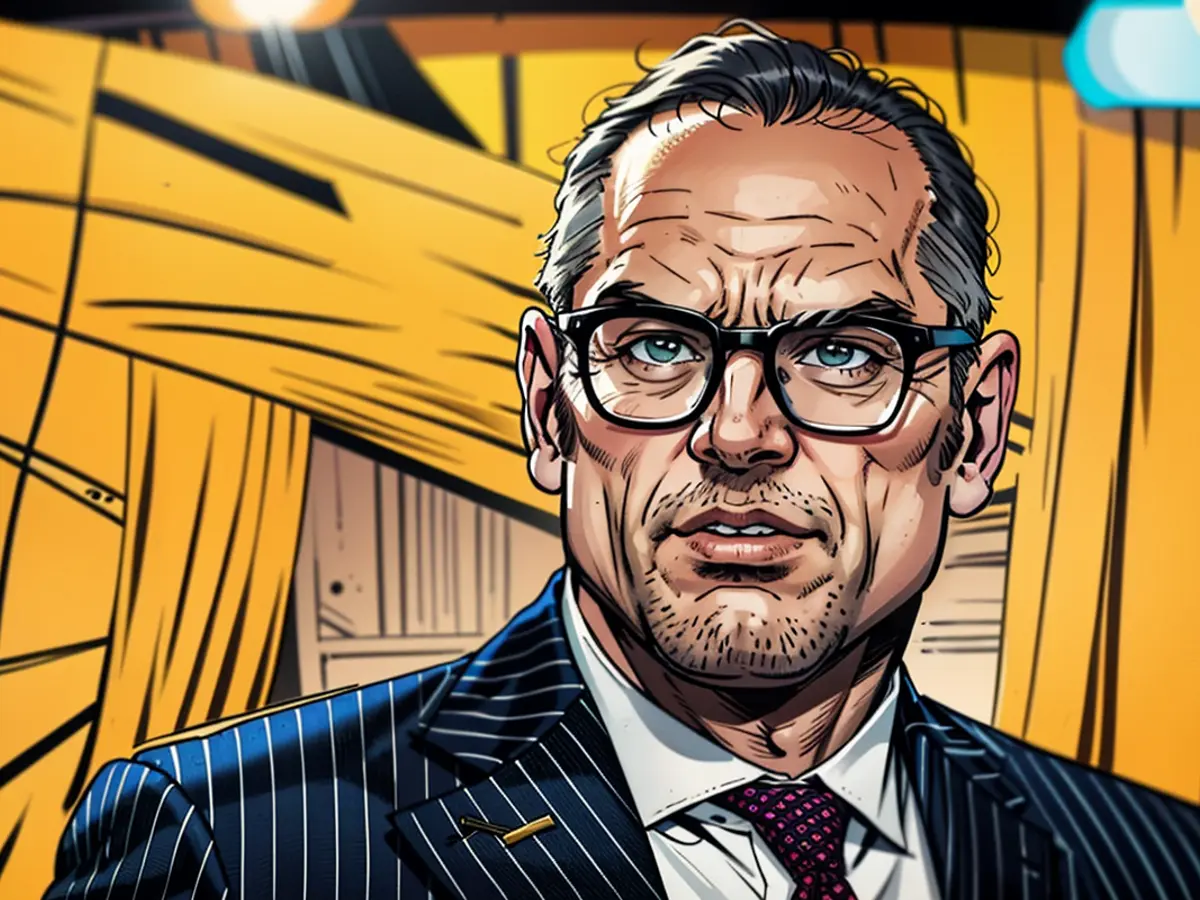It's crucial to revise the debt limit mechanism.
Businessman and ex-federal finance minister of the FDP, Harald Christ, is advocating for "a blueprint for Germany" with investments in infrastructure, education, and digitalization. The location of the funds is critical, according to Christ, in the podcast "Die Stunde Null." At the same time, Christ considers the fundamental structure of the German economic system to be solid.
The location of Germany has been debated for years. However, in the current situation, it seems like a critical moment. Major corporations like Volkswagen are struggling, and the economy has been slow for a long time. Is it that serious this time?
Harald Christ: It's true that we've had headlines like "Germany - the sick man of Europe" or "Germany is lagging behind" in the past. And then we had the longest expansion the Federal Republic has ever had, from 2005 to 2021, lasting 16 years. So I'm not spreading doom and gloom about the location or delivering angry speeches. We have a very stable economic base, we're the third-largest economy, have successful corporations, and a stable middle class.
But there are still significant hurdles.
What's true is that we're in the midst of an economic transition, and there are industries facing significant challenges. This includes energy-intensive industries like chemistry and pharmaceuticals, as well as the automotive industry. But we've experienced transformations like this throughout our industrial history, resulting in entire sectors suffering. Whining won't help; instead, we need to look ahead and find ways to enhance our competitiveness again.
So it's an issue with specific industries rather than a fundamental crisis of the German economic model?
We do have fundamental challenges, of course. Our energy costs are too high, we have an increasing bureaucracy that burdens companies with costs, and we have high wage costs. We're a high-tax country, particularly for corporations. But the question we should ask ourselves is what steps we can take to escape this situation and reach the next level of growth.
You say we need to find ways to escape this situation. There's a major strategic paper by former ECB president Mario Draghi, calling for a massive investment program for all of Europe - up to 800 billion euros per year. What do you say as a liberal when so much state aid is being called for?
I'm not trapped in an ideological box, I evaluate reality and act on it. And yes, we need to invest more. But the critical question is where this money goes. Does it go into expanding social costs, like citizen's income, pensions, or social benefits? Or does it go into infrastructure, research, and development, education, and AI? But we do have a debt brake in Germany.
That's the next question. Doesn't it limit investments?
The debt brake was passed with broad political support, so a finance minister must stick to it. That makes it challenging. We need to reform the debt brake. It doesn't mean unlimited debt. But we can't burden future generations with a run-down infrastructure and a country that's no longer competitive.
How could such a reform be implemented?
I don't believe it can be implemented during this legislative period. I think it will happen from 2025 onwards, no matter who is in power. But it must be supported by both the government and the opposition. We need more money for internal security, defense. We cannot avoid adjusting the debt brake. But we must do so with a forward-looking approach. We need a plan for Germany, one that extends beyond the next legislative period.
That does sound like a significant investment program.
That's right, but the focus is always on investments. If you invest an additional 50 billion euros in infrastructure today, that's new debt on the one hand. But in the long run, you should see an increase in the wealth of the economy.
Listen to the new episode of "The Zero Hour"
· What the traffic light coalition is doing well in Christ's opinion
· Why Christ is betting on the AI company Aleph Alpha
· Why he thinks countering right-wing populism helps
All episodes are available directly on RTL,Apple, or Spotify, or via Google**.
Harald Christ acknowledges the existence of significant hurdles in Germany's economy, particularly in energy-intensive industries like chemistry and pharmaceuticals, as well as the automotive sector. Despite these challenges, he believes that the German economic model itself is not fundamentally flawed.
In light of the economic transition, Harald Christ advocates for investing in infrastructure, education, and digitalization, but emphasizes the importance of carefully allocating these funds to boost competitiveness rather than increasing social costs. He also suggests reforming the debt brake to avoid burdening future generations with a run-down infrastructure and a less competitive country.









